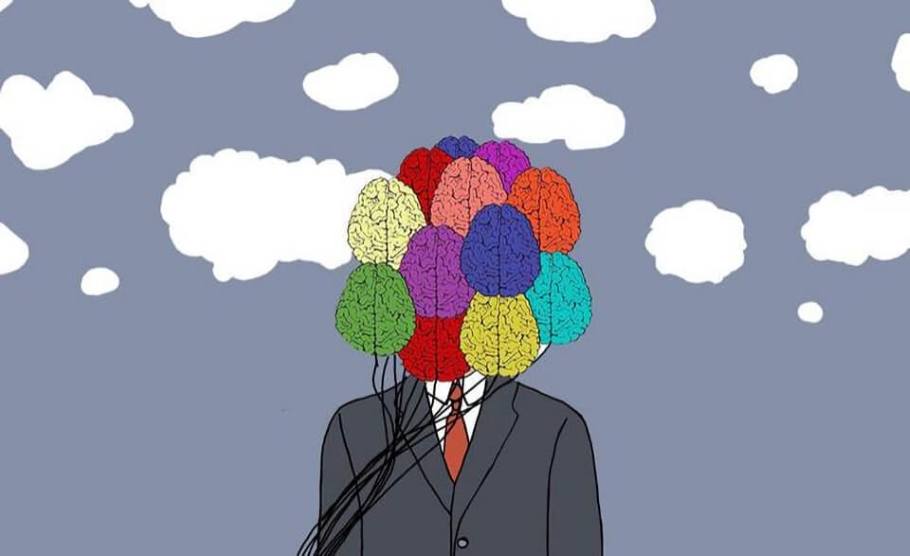
[ad_1]
Primary Digest
“Adaptive Expression of Engrams by Retroactive Interference” – Cell Stories.
Neuroscientists report the primary outcomes from experimental assessments designed to discover the concept that “forgetting” may not be a foul factor, and that it might signify a type of studying – and description outcomes that help their core concept.
Final 12 months the neuroscientists behind the brand new principle steered that adjustments in our capacity to entry particular recollections are based mostly on environmental suggestions and predictability. And that quite than being a bug, forgetting could also be a useful function of the mind, permitting it to work together dynamically with a dynamic surroundings.
In a altering world just like the one we and lots of different organisms dwell in, forgetting some recollections could be useful, they reasoned, as this could result in extra versatile habits and higher decision-making. If recollections had been gained in circumstances that aren’t wholly related to the present surroundings, forgetting them may very well be a optimistic change that improves our wellbeing.
Right this moment, in main worldwide journal Cell Stories, they current the primary in a sequence of latest experimental research the place the impact of pure, “each day” forgetting was investigated with respect to how regular forgetting processes have an effect on explicit recollections within the mind.

Continued…
The crew studied a type of forgetting known as retroactive interference, the place completely different experiences occurring intently in time could cause the forgetting of not too long ago shaped recollections. Of their examine, mice had been requested to affiliate a selected object with a specific context or room, after which acknowledge that an object that was displaced from its unique context. Nevertheless, mice neglect these associations when competing experiences are allowed to ‘intrude’ with the primary reminiscence.
To review the results of this type of forgetting on reminiscence itself, the neuroscientists genetically labelled a contextual “engram” (a bunch of mind cells that retailer a selected reminiscence) within the brains of those mice, and adopted the activation and functioning of those cells after forgetting had occurred. Crucially, utilizing a method known as optogenetics they discovered that stimulation of the engram cells with gentle retrieved the apparently misplaced recollections in multiple behavioral scenario. Moreover, when the mice got new experiences that associated to the forgotten recollections, the ‘misplaced’ engrams may very well be naturally rejuvenated.
Dr Tomás Ryan, Affiliate Professor within the College of Biochemistry and Immunology and the Trinity School Institute of Neuroscience at Trinity School Dublin, is lead creator of the just-published journal article.
Dr Ryan, whose analysis crew is predicated within the Trinity Biomedical Sciences Institute (TBSI), stated:
“Recollections are saved in ensembles of neurons known as ‘engram cells’ and profitable recall of those recollections entails the reactivation of those ensembles. By logical extension, forgetting happens when engram cells can’t be reactivated. Nevertheless, it’s more and more changing into clear that the recollections themselves are nonetheless there, however the particular ensembles usually are not activated and so the reminiscence will not be recalled. It is as if the recollections are saved in a secure however you possibly can’t bear in mind the code to unlock it.”
Dr Livia Autore, Irish Analysis Council (IRC) Postgraduate Scholar, who spearheaded this work within the Ryan Lab in Trinity, added:
“Our findings right here help the concept that competitors between engrams impacts recall and that the forgotten reminiscence hint might be reactivated by each pure and synthetic cues in addition to up to date with new info. The continual stream of environmental adjustments results in the encoding of a number of engrams that compete for his or her consolidation and expression.”
“So whereas some could persist undisturbed, some might be subjected to interference by new incoming and prevailing info. Nevertheless, the interfered recollections can nonetheless be reactivated by surrounding cues resulting in reminiscence expression or by deceptive or novel experiences ending up in an up to date behavioral end result.”
As a result of we now know that “pure forgetting” is reversible in sure circumstances, this work has important implications for illness states – comparable to in individuals dwelling with Alzheimer’s illness for instance, the place these each day forgetting processes could also be mistakenly activated by mind illness.
[ad_2]